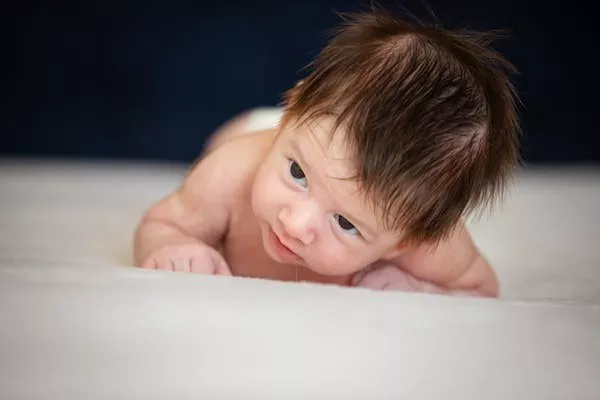In the exciting journey of preparing for the arrival of your newborn, one essential item you can’t overlook is diapers. As a new parent, it’s natural to wonder just how many diapers you’ll need to keep your precious bundle of joy dry and comfortable. In this comprehensive guide, we’ll break down everything you need to know about the right quantity of diapers for your newborn. Let’s dive in!
1. Understanding Newborn Diaper Usage
Before we delve into the quantity of diapers, it’s important to understand how often newborns typically need diaper changes. On average, a newborn baby can go through 8 to 12 diaper changes in a day. This frequency is primarily due to their small stomach size and rapid metabolism, which leads to frequent feedings and, consequently, diaper changes.
2. Choosing the Right Diaper Size
Selecting the appropriate diaper size is crucial for ensuring your baby’s comfort and preventing leaks. Newborn diapers are designed for babies up to 10 pounds (4.5 kilograms), but it’s essential to consider your baby’s weight and body shape. Keep in mind that not all newborns are the same size, so it’s wise to have a variety of diaper sizes on hand.
a. Preemie Diapers: If your baby is born prematurely or has a lower birth weight, preemie diapers may be necessary. These are designed for babies weighing less than 6 pounds (2.7 kilograms).
b. Newborn Diapers: For most newborns, standard newborn-sized diapers are suitable. These typically fit babies up to 10 pounds and offer a snug and secure fit.
c. Size 1 Diapers: If your baby is on the larger side or quickly outgrows newborn diapers, you may need to transition to size 1 diapers, designed for babies 8 to 14 pounds (3.6 to 6.4 kilograms).
3. Estimating Diaper Quantity
To estimate how many diapers you’ll need for your newborn, it’s helpful to do some simple math. On average, newborns go through 10 diapers a day for the first few weeks. This number gradually decreases as your baby grows and their bowel movements become less frequent.
a. First Month: During the first month, when your baby’s bowel movements are frequent, you can expect to use approximately 300 diapers.
b. Second and Third Months: In the following months, the diaper usage may reduce to around 8 diapers per day, totaling approximately 240 diapers per month.
c. Beyond Three Months: As your baby continues to grow, their diaper needs will vary. It’s wise to keep a supply of diapers for the next size handy as your baby reaches the weight limit for their current size.
4. Stocking Up on Diapers
Now that you have an estimate of your baby’s diaper needs, it’s time to think about stocking up. Purchasing diapers in bulk can save you time and money in the long run. Consider buying diapers in packages or cases to ensure you have an ample supply.
5. Diapering Tips for New Parents
Diapering your newborn isn’t just about the quantity of diapers; it’s also about doing it effectively and ensuring your baby’s comfort and hygiene. Here are some essential diapering tips:
a. Keep Everything Within Reach: Before changing your baby, make sure you have all the necessary supplies like diapers, wipes, and a clean changing pad within arm’s reach to avoid leaving your baby unattended.
b. Check for Wetness: You don’t always need to change your baby’s diaper immediately after every wet diaper. Most modern diapers have excellent moisture-wicking capabilities, so a slightly wet diaper is not a cause for concern.
c. Avoid Tight Fastening: Make sure not to fasten the diaper too tightly to allow for proper air circulation and prevent irritation.
d. Diaper Rash Prevention: Apply a diaper rash cream or ointment during each diaper change to protect your baby’s delicate skin from irritation.
6. Environmentally-Friendly Diapering Options
While disposable diapers are the most common choice, some parents opt for cloth diapers to reduce environmental impact. Cloth diapers are reusable and come in various styles, including prefolds, fitted, and all-in-ones. If you’re interested in exploring eco-friendly diapering options, do some research and choose what aligns best with your family’s values and lifestyle.
In conclusion, the number of diapers you need for your newborn can vary based on factors like their weight, diaper size, and age. It’s essential to be prepared with an adequate supply to keep your baby clean, dry, and comfortable. By following these guidelines and tips, you’ll be well-equipped to navigate the world of newborn diapering with confidence and ease. Congratulations on your upcoming addition to the family, and happy diapering!


